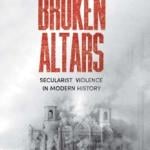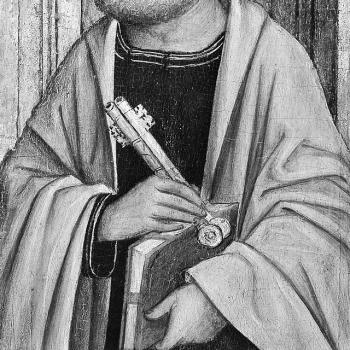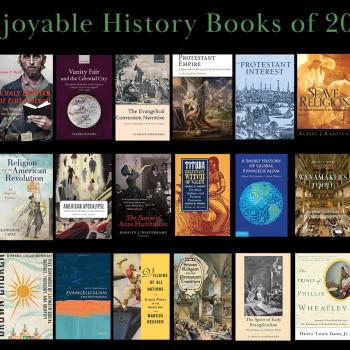For a new book projective tentatively entitled “Unholy Wars: Secularist Violence in Modern History,” I spent a delightful week working in the Keston Archives at the Keston Center at Baylor University. The archives holdings include bountiful material from religious communities persecuted under communist regimes in the twentieth century. The brainchild of the Anglican priest Michael Bourdeaux, the archives’ holdings go back to the 1950s and in some cases even earlier. The Center’s mission is “to promote research and encourage the study of religion in communist, post-communist, and other totalitarian societies.” While there, I looked at materials from the Soviet Union, Albania, Czechoslovakia, East Germany, China, and elsewhere.
On the Center’s website, one finds this thumbnail history:
In 1959, British exchange student Michael Bourdeaux received a note from Russian Christians asking for help. There, he learned of religious atrocities. After a divine meeting with the women who penned the letter, he took up their call to be the voice of the voiceless and in 1969 established the Keston Institute to document the fight for religious freedom by believers behind the Iron Curtain. A vast library and unique archive formed Keston’s core. In 2007, the Institute passed its collection to the newly created Keston Center for Religion, Politics, and Society at Baylor University to preserve the resources and promote research on religion in totalitarian societies.
During my visit to Baylor, I had the opportunity to meet with Julie K deGraffenried, who teaches and writes about modern Russian history for Baylor’s history department. In her own research, she has drawn from Keston’s holdings (which also includes a small library) and she has even produced an edited volume on the archive: Voices of the Voiceless: Religion, Communism, and the Keston Archive. Its cover description elaborates on Keston’s history:
In 1969, at the height of the Cold War, a group of British Christian researchers and activists, moved by the persecution of believers in the Soviet Union, established an organization dedicated to the study of religion under communism. They had two major goals: to educate the public about religious persecution and to promote academic analysis of religion in communist societies. The organization they founded, eventually named Keston College, amassed an extraordinary collection of primary source and research materials, used by its personnel to document the experiences of persecuted believers in the Soviet bloc and beyond and to publicize human rights violations against believers of all faiths. This formed the basis of a unique collection, called the Keston Archive, now at Baylor University.
Voices of the Voiceless, edited by Julie deGraffenried and Zoe Knox, presents readers with twenty-five essays on a curated selection of images and artifacts from the Keston Archive. Some of the world’s leading authorities on religion and communism as well as experts personally involved with the operation of Keston College carefully selected and provided commentary for these images. The archival material presented in the book offers vivid testimony of this critically important era in the history of religion and of the Cold War.
A guided look into the past, Voices of the Voiceless reveals the power of what atheist and antireligious regimes sought to silence. This collection documents how believers fought for religious freedom, coped with oppression, and practiced their faith, individually and collectively, in states hostile to religion. It also presents atheist propaganda produced by communist regimes that aimed to marginalize and ultimately eradicate religion. This book offers insights into how faith survived―and even flourished―during one of the most intense antireligious campaigns of the modern era.
Additionally, in her delightful book, Religion in Secular Archives: Soviet Atheism and Historical Knowledge (Oxford University Press, 2015), the anthropologist Sonja Luehrmann has a chapter on Keston and its holdings.
Sadly, Michael Bourdeaux, who set the whole project in motion, has recently died at the age of 87. One can read his obituary in the UK’s Guardian here.
Baylor’s Center has a wonderful staff that includes Larisa Seago, the head archivist and native Russian speaker. I hope to make good uses of its resources for my book. Other scholars (and really anyone interested in the religious history of the twentieth century) should know about this invaluable institution. May its good work continue.













